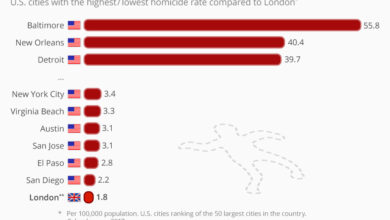Funding Your Journey: A Comprehensive Guide to Gap Year Grants

Embarking on a gap year can be a transformative experience, offering the chance to explore new cultures, gain valuable skills, and discover one’s passions outside the traditional academic setting. However, for many students, the financial aspect can pose a significant hurdle. Fortunately, various organizations and institutions provide gap year grants to support students in their quest for experiential learning. In this comprehensive guide, we’ll explore the world of gap year grants, providing insights, tips, and resources for those seeking financial assistance.
Understanding Gap Year Grants
Understanding tussenjaarbeurs involves recognizing their role as financial awards designed to make transformative experiential learning opportunities more accessible, catering to both need-based and merit-based criteria.
What Are Gap Year Grants?
- Definition: Gap year grants are financial awards designed to support individuals during their gap year, enabling them to pursue meaningful experiences, such as volunteering, internships, travel, or personal projects.
- Purpose: These grants aim to make gap year opportunities more accessible, recognizing the educational and personal growth that can arise from experiential learning.
Types of Gap Year Grants
- Need-Based Grants: Awarded to individuals based on financial need, ensuring that economic barriers do not hinder access to transformative gap year experiences.
- Merit-Based Grants: Granted to applicants with outstanding achievements or potential in academics, community service, or other relevant areas.
- Destination-Specific Grants: Some organizations offer grants specifically for gap year programs in certain regions or countries.
- Project-Specific Grants: Geared towards individuals with well-defined projects, such as research, community development, or entrepreneurial ventures during their gap year.
Finding Gap Year Grant Opportunities
Finding gap year grant opportunities requires strategic exploration, from engaging with government and nonprofit organizations to researching educational institutions, private foundations, corporations, and online platforms that support the pursuit of meaningful experiences during a gap year.
Government and Nonprofit Organizations:
- USA Gap Year Fair: Participating in events like the USA Gap Year Fair provides access to information on gap year programs and potential funding opportunities.
- Peace Corps Fellows Program: The Peace Corps offers financial assistance for returned volunteers pursuing graduate-level education during their gap year.
- Fulbright U.S. Student Program: For those interested in international experiences, the Fulbright Program provides grants for academic and cultural exchange.
Educational Institutions:
- University Scholarships: Many universities offer gap year scholarships to incoming or returning students, encouraging experiential learning before or during college.
- Gap Year Fellowship Programs: Some universities partner with organizations to provide fellowship programs, supporting students in their gap year endeavors.
Private Foundations and Corporations:
- Gap Year Association (GYA): GYA offers a database of scholarships and grants specifically tailored for gap years, connecting students with potential funding sources.
- Rotary Foundation: Rotary International provides global grant opportunities for individuals engaged in projects that align with the organization’s mission.
Online Platforms and Databases:
- GoAbroad.com: GoAbroad features a comprehensive database of scholarships and grants for international experiences, including gap years.
- The College Board Scholarship Search: The College Board’s search engine helps students find scholarships, grants, and other financial aid options for their gap year.
Tips for Applying to Gap Year Grants
When applying to gap year grants, starting early, identifying and emphasizing your strengths, demonstrating financial need, and crafting a compelling application are key tips to increase your chances of securing financial support for your transformative gap year journey.
Start Early:
- Research in Advance: Begin researching potential gap year programs and corresponding grants well in advance to meet application deadlines.
- Plan Your Gap Year: Clearly outline your goals, proposed activities, and budget to convey a well-thought-out plan to grant providers.
Identify Your Strengths:
- Highlight Achievements: Emphasize academic achievements, extracurricular involvement, and community service to strengthen merit-based grant applications.
- Articulate Your Passion: Clearly express your passion for the proposed gap year activities and how they align with your personal and academic goals.
Demonstrate Financial Need:
- Complete the FAFSA: If applicable, completing the Free Application for Federal Student Aid (FAFSA) can provide documentation of financial need.
- Provide Supporting Documents: Be prepared to submit supporting documents, such as tax returns or letters of recommendation, to strengthen your case for need-based grants.
Craft a Compelling Application:
- Personalize Your Essays: Tailor your application essays to reflect your unique experiences, aspirations, and the specific goals of your gap year.
- Show Impact: Clearly articulate how the gap year experience will positively impact your personal and academic growth.
Maximizing the Long-Term Impact
Maximizing the long-term impact of a gap year involves reflective practices, goal setting, networking, skill development, and embracing a global perspective, ensuring that the experiences gained during this period contribute significantly to personal and professional growth.
Reflection and Goal Setting:
- Journaling: Documenting your experiences through journals or blogs helps in reflecting on personal growth and accomplishments during the gap year.
- Goal Reassessment: Use the gap year as an opportunity to reassess academic and personal goals, ensuring a more focused approach upon return.
Networking and Skill Development:
- Professional Networking: Establish connections with professionals in your field of interest during your gap year, providing valuable networking opportunities.
- Skill Building: Actively engage in skill-building activities, whether through work, internships, or volunteering, to enhance your resume and future career prospects.
Global Perspective:
- Cultural Competence: Exposure to diverse cultures during a gap year fosters cultural competence, a valuable asset in an interconnected world.
- Language Skills: Immersion experiences contribute to improved language skills, offering a unique advantage in an increasingly globalized job market.
Conclusion
In conclusion, a high school gap year can be a transformative period of exploration and self-discovery, and securing a grant can significantly enhance the accessibility of such experiences. By understanding the types of grants available, researching opportunities, and applying strategically, individuals can unlock the financial support needed to embark on a journey that goes beyond traditional educational pathways.



